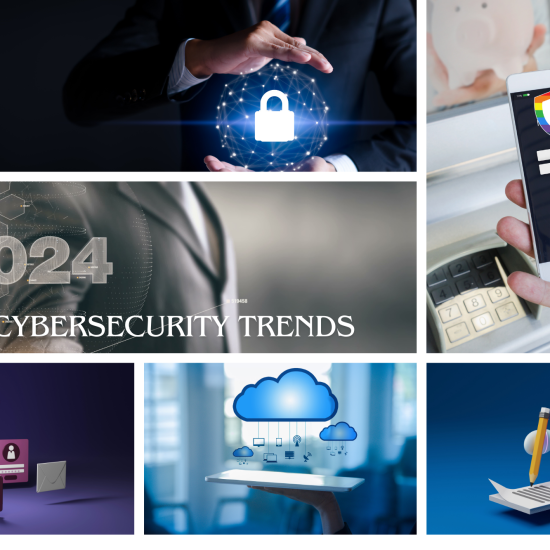The Importance of Securing Your Website: A Guide to Cybersecurity
Did you know that every day, 30,000 websites worldwide are under attack? This alarming fact underscores the importance of securing your website from viruses, bugs, and other malicious online threats. Without proper protection, your data, site, and even profits could be at risk.
Consider the various industries that rely on the internet to collect, process, and store sensitive information. From government to healthcare, these entities depend on a secure infrastructure to operate and deliver critical services. Any attack on this infrastructure could have far-reaching consequences, threatening national security, economies, and public safety.
Given the high stakes, we’ve put together the ultimate guide to cybersecurity. Here, we share some tips on how to safeguard your website and data against attacks.
In this article, you will read about:
What Are the Common Signs of a Hacked Website?
Some tips on how to protect your website.
How can Rainbow Secure help?
What Are the Common Signs of a Hacked Website?
Before we jump into ways to prevent website hacking, it’s important to recognize the signs that your site has already been hacked. While there’s no definitive way a hacked website will look, there are patterns that can help you identify if your website has been compromised. Here are some common signs of a hacked website:
- Ransomware – Hackers threaten to publish your data and withhold access to your site unless a ransom sum is paid.
- Gibberish hack – You’ll notice a large number of auto-created pages that are filled with irrelevant keywords and gibberish that aim to rank on Google for specific terms. When clicked on, they’ll redirect to a suspicious site.
- Cloaked keywords hack – It is similar to the gibberish hack, but more sophisticated. At first glance, the hacked pages will look like your site’s pages, but only the text content will be altered.
- Japanese keywords hack – Random pages in Japanese with affiliate links to stores selling counterfeit goods are created.
- Malicious code/viruses – If malicious code or a virus is inserted into your site, it may go down or become inaccessible. Additionally, all of your hardware may also be affected.
- Denial of Service (DoS) – Hackers use bots to overload a website with requests and crash the server it’s on.
- Phishing – Scammers contact your clients pretending to be a part of your business and using your branding to collect personal information.
Some tips on how to protect your website.
Here are some tips on how to protect your website:
- Install an SSL Certificate to Protect Your Website and Users
- Safeguard Your Website with Anti-Malware Software
- Why Keeping Your Website Up to Date is Crucial?
- Enhance Your Website’s Security with Strong Passwords
- Why Backing Up Your Website is Important and How to Do It ?
Install an SSL Certificate to Protect Your Website and Users
One of the simplest ways to safeguard your website, yourself, and your visitors is by installing an SSL (Secure Sockets Layer) certificate. You may not be aware of it, but SSL is used all the time while browsing the web – it’s what the “s” in “https” stands for and the padlock icon in the address bar indicates. SSL encrypts data between your website and your visitors, and Google now alerts visitors when they’re accessing an unsecured website. It’s particularly critical to have SSL security if you’re processing payments, asking for login details, or transferring files. Without SSL, information exchanged is unprotected and vulnerable to hackers.
Secure Your Website with SSL: SSL, also known as Secure Sockets Layer, is a protocol that establishes an encrypted link between a web server and a web browser. This means that all data exchanged between a visitor and website will be secure. An SSL certificate for your WordPress website is essential, especially if you’re running an ecommerce store. The SSL certificate will help safeguard your customers’ sensitive payment information.
Obtaining an SSL Certificate: You don’t need any technical know-how to secure your website with SSL. You can easily obtain an SSL certificate from a hosting provider, domain registrar, or certificate authority (CA). Prices vary, but you can get an SSL certificate for free. Many hosting companies provide SSL certificates for free in their hosting packages.
Safeguard Your Website with Anti-Malware Software
Don’t let the technical jargon surrounding “anti-malware software” intimidate you – it’s designed to do the heavy lifting, so you don’t have to. With a variety of options available, it’s easy to find a solution that suits your needs and budget.
You can also take help from managed website security services like those from Rainbow Secure that comes bundled with account takeover protection using Rainbow Secure MFA and addons like domain protection and data privacy recommendations.
Why Keeping Your Website Up to Date is Crucial ?
Posting the latest gossip or showcasing your newest product is great, but it’s not the only thing you should be doing to keep your website relevant. One of the most important aspects of website management is keeping your software up to date.
If you’re using a website builder, you’re in luck – most builders handle software updates and security issues for you. But if you’re using a platform like WordPress, you need to be vigilant and run updates as needed while making sure that new updates don’t break your code. This includes updating your WordPress core software, as well as any plugins you’ve installed.
Outdated software can put your website at risk for viruses, cyber attacks, and other security issues. To help avoid these problems, keep your website up-to-date by regularly checking for any updates or setting up auto-updates. These updates usually contain security patches from developers, so it’s essential to make them as soon as possible.
If you’re on WordPress, many hosting providers offer managed hosting, which takes care of updates for you. Additionally, you can choose to take help of Rainbow Secure and its website developer partners which reviews and installs required updates for the WordPress core, themes, and plugins.
Enhance Your Website’s Security with Strong Passwords
Your website and its contents can fall prey to hackers if you use simple passwords such as common words, number sequences, your name, or the name of your website. These passwords are easily hacked, making it critical to use strong passwords to protect your website.
Some tips to keep in mind when creating strong passwords include:
- Utilizing a combination of alphabetical and numerical characters
- Incorporating both upper and lower case letters
- Incorporating special characters
If this sounds too much for you or your users, take help from Rainbow Secure that offers innovative, patented, multilayer graphical login solution that will enhance your productivity and user experience. Add layers of security by adding colour and style to your password.

Rainbow Secure offers enhanced protection via its Smart Multi-Factor Authentication plugin. No more complex passwords that still has chance to be stolen and no more boring captchas to solve. Adopt rainbow secure MFA and have a peace of mind.
Why Backing Up Your Website is Important and How to Do It ?
Your website is not immune to malicious attacks, hardware failure, or natural disasters. These unfortunate events can cause you to lose all your data, customizations, and settings. That is why it is essential to create routine backups of your site. Regular backups will save you time, money, and effort in dealing with data loss.
Creating a backup of your website’s core files, media, non-media content, and databases is essential. You can create backups manually, with a tool, or rely on your hosting provider to do so. Most tools and hosting providers will let you schedule and automate backups.
Using a backup service is usually the safest and most reliable way to go. Still, whichever backup method you choose, there are some important things that you should always look for:
- Off-site backups – this keeps your data far away from hackers in a secure, off-site location rather than in a normal server. This also protects your backups from hardware failure.
- Automated backups – by automating this process you can simply sit back and relax.
- Redundant backups – this means your website’s data is stored in not just one, but multiple server locations. Think of it like having backups or your backups!
- Regular backups – it’s no good if you’re only running backups once per year. If a hack attack strikes, you’ll be left with an outdated version of your site. You should aim for weekly backups at the very least. The more frequently you update your website, the more frequent your backups should be.
Remember, while creating routine backups of your website is not a proactive approach to website security, it is essential in cases of malicious attacks, hardware failure, or natural disasters. Backing up your website ensures that if the worst were to happen, you’d still have a recent version of your site stored safe and sound, and ready to be relaunched.
Remember, website security begins with you, so choose a reliable website builder or hosting provider along with trusted website security provider, make smart choices about how you manage your site, and put in extra effort to secure your accounts and passwords.
How can Rainbow Secure help?
Right amount of data and system access to right person or role at right time is the key to organizations being able to use digital tools and platforms to serve the customer base and stay compliant.
Next Generation Rainbow Secure platform is a modern identity authentication (MFA) and single sign- on (SSO) solution for your business across on-premises and cloud environments. It’s backed by an experienced team of cloud and security experts, years of innovation, and partnerships with leading cloud platforms. Rainbow Secure is a Leader in Smart and Secure Digital Solutions that work for you.
Insider Threats: Rainbow Secure assists in mitigating insider threats by implementing access controls, user monitoring, and privilege management solutions. Also, if the user leaves behind unlocked devices, saved passwords in the password manager or browser can be misused by malicious insiders. Interactive login security from Rainbow Secure helps prevents unauthorized access and protects against data theft or misuse by privileged users.
ChatGPT Security for business: Secure your ChatGPT login and Data with Rainbow Secure MFA Plugin.
Secure AI Integration: Consult Rainbow Secure Team to integrate AI in your business workflows powered by Azure and Rainbow Secure API.
Secure Workforce & Customer login: Use Authentication Plug-in by Rainbow Secure to secure workforce and customer logins. In this plug-in, you get a multi-dimensional password, passwordless login solutions with AI monitoring, Risk Analytics, and location fencing.
IoT Friendly Security: IoT platform developers can secure their cloud endpoints, and user logins (both admin and customer) against unauthorized access and scripted malware attacks using easy to adapt and support multi-layer interactive rainbow secure authentication solutions and services that includes but not limited to security assessment, API Security, secure user onboarding, and risk analytics.
Secure Data and its Backups We provide Cloud based data vault and data archive solutions backed by Microsoft Azure and secured by our authentication plugin and industry best practices to give you ransomware protection, help with data governance and disaster mitigation.
Database Security We provide technical consulting services to Secure Databases in cloud and on premise. You get best protection for your data in databases using native and third-party security tools.
Meet Compliance Requirements: Use Authentication Plug-in by Rainbow Secure with your business application and in SSO (Single Sign-on) and meet industry standards and compliance regulations such as NIST, ISO, FTC, SOX, SOC2, CMMC, CMMI, HIPAA, PCI, and others.
Securely communicate and Collaborate: Use Secure Business Email by Rainbow Secure and get protection against account takeover, phishing, ransomware, and automated login cyber frauds. In this email, you get options to send encrypted emails, single sign-on with Office 365, and Google, and 1 TB one drive storage.
Connect Business applications: Get one unified login using Rainbow Secure Single Sign-On
Manage User Onboarding / Offboarding using Rainbow Secure IAM
Verify User using Smart Multi-factor MFA. Smart Multi-Factor Authentication from Rainbow Secure which adjusts to your use case, reduces the cyber liabilities of a business from stolen credentials and improves productivity, and enhances user experience.
Do you have more questions about how Rainbow Secure innovative solutions help you enhance your website security posture and safeguard your business? Contact us today. Email us at Hello@rainbowsecure.com
Rainbow Secure has been successfully organizing “Cyber Symposium” for the past two consecutive years. In an endeavor to spread cyber awareness and equip businesses to learn and protect them from threats and cyber- attacks. Kindy join for this year “Rainbow Secure Cyber Symposium 2023” to gain knowledge from various insightful sessions to be delivered by eminent Industry experts. Become part of Panel discussions and enrich your knowledge and enhance your security posture. If you missed any sessions, don’t worry, sign up now or visit our youtube channel to see recent sessions







